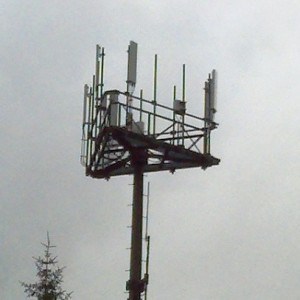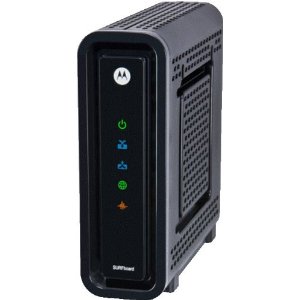 WASHINGTON (Reuters) – The U.S. Supreme Court on Monday agreed to hear cable television operator Comcast Corp’s bid to throw out comedian and producer Byron Allen’s racial bias lawsuit accusing the company of discriminating against black-owned channels.
WASHINGTON (Reuters) – The U.S. Supreme Court on Monday agreed to hear cable television operator Comcast Corp’s bid to throw out comedian and producer Byron Allen’s racial bias lawsuit accusing the company of discriminating against black-owned channels.
The justices will review a decision by the San Francisco-based 9th U.S. Circuit Court of Appeals that cleared the way for a $20 billion civil rights lawsuit against Comcast to proceed. At issue in the litigation is the refusal by Comcast to carry channels operated by Entertainment Studios Networks, owned by Byron Allen, who is black.
The justices did not act on a similar appeal by Charter Communications involving claims by Allen after the company also declined to carry his channels. That case likely will be guided by the outcome in Comcast’s appeal.
Comcast and Charter have said their business decisions were based on capacity constraints, not race, and that Allen’s channels, including JusticeCentral.TV, Cars.TV, Pets.TV and Comedy.TV, did not show sufficient promise or customer demand to merit distribution. Other television distributors, including Verizon, AT&T and DirecTV, carry some of Allen’s programming, court papers said.
“Comcast has an outstanding record of supporting and fostering diverse programming, including programming from African-American owned channels, two more of which we launched earlier this year,” the company said in a statement, adding that it hopes the Supreme Court will bring the case to an end.

Allen
Allen disputed the statement, saying the channels Comcast mentioned are not wholly owned by African Americans. Comcast, Allen said, “will continue to lose this case, and the American people who stand against racial discrimination will win.”
Entertainment Studios Networks sued in Los Angeles federal court, accusing the cable companies of violating the Civil Rights Act of 1866, a post-Civil War law that forbids racial discrimination in business contracts.
The suits brought by Allen pinned the rejections primarily on racial discrimination, accusing cable executives of giving insincere or invalid excuses and granting contracts to carry white-owned networks during the same period.
The lawsuits also alleged that the companies’ commitments to diversity are a sham and that they have used outside civil rights groups, such as Reverend Al Sharpton’s National Action Network, to provide cover for empty promises. Comcast called those accusations “outlandish.”
Both Comcast and Charter called the lawsuits a “scam” and sought to have the cases dismissed. But the 9th Circuit last year allowed the litigation to proceed.
At the heart of the case is the question of whether individuals who are refused a business contract can sue under the civil rights law without ruling out reasons other than discrimination for the denial. The 9th Circuit said lawsuits can proceed to trial if plaintiffs can show that discriminatory intent was one factor among others in the denial of a contract.
Reporting by Andrew Chung; Editing by Will Dunham


 Subscribe
Subscribe A New York bankruptcy judge cleared the way for Windstream Holdings to pay its top executives up to $24 million in special retention bonuses to convince them to stay at Windstream while the company continues restructuring under Chapter 11 bankruptcy.
A New York bankruptcy judge cleared the way for Windstream Holdings to pay its top executives up to $24 million in special retention bonuses to convince them to stay at Windstream while the company continues restructuring under Chapter 11 bankruptcy.
 AT&T claims it is willing to play hardball to force cell tower owners to reduce the cost of leasing space for AT&T’s wireless services. If tower owners won’t lower their prices, AT&T is threatening to find someone else willing to build a new, cheaper tower nearby.
AT&T claims it is willing to play hardball to force cell tower owners to reduce the cost of leasing space for AT&T’s wireless services. If tower owners won’t lower their prices, AT&T is threatening to find someone else willing to build a new, cheaper tower nearby. WarnerMedia’s forthcoming streaming service will showcase HBO and Cinemax at the heart of a one-size-fits-all streaming package priced at $16-17 a month, featuring premium movies and Warner Bros. vast movie and TV show collection. We wanted to enjoy those streams.
WarnerMedia’s forthcoming streaming service will showcase HBO and Cinemax at the heart of a one-size-fits-all streaming package priced at $16-17 a month, featuring premium movies and Warner Bros. vast movie and TV show collection. We wanted to enjoy those streams. 

 Charter Spectrum sold its merger with Time Warner Cable and Bright House Networks partly on its argument that modem fees would no longer be charged. Despite that, many former Time Warner Cable and Bright House customers still use their own modems, which has been a problem for a company that raised the standard internet speed available to residential customers from 15 Mbps to 100 Mbps (200 Mbps in some markets, mostly those also served by AT&T). Older modems often cannot achieve those speeds. Spectrum notifies affected customers in periodic campaigns, offering to replace their obsolete equipment, but many customers suspect hidden fees may be lurking in such offers and discard them.
Charter Spectrum sold its merger with Time Warner Cable and Bright House Networks partly on its argument that modem fees would no longer be charged. Despite that, many former Time Warner Cable and Bright House customers still use their own modems, which has been a problem for a company that raised the standard internet speed available to residential customers from 15 Mbps to 100 Mbps (200 Mbps in some markets, mostly those also served by AT&T). Older modems often cannot achieve those speeds. Spectrum notifies affected customers in periodic campaigns, offering to replace their obsolete equipment, but many customers suspect hidden fees may be lurking in such offers and discard them. Cox is also in a similar predicament. It runs seasonal checks on its network to identify customers using older DOCSIS modems, often DOCSIS 3.0 4×4 modems, which can only support four download channels. When it finds customers eligible for an upgrade, it mails postcards offering a “free modem upgrade,” usually supplying a SB6183 or SB8200 modem that can arrive in 24-48 hours. But many Cox customers suspect trickery from Cox as well, or run into poorly trained customer service representatives that reject the postcards, claiming the customer is ineligible.
Cox is also in a similar predicament. It runs seasonal checks on its network to identify customers using older DOCSIS modems, often DOCSIS 3.0 4×4 modems, which can only support four download channels. When it finds customers eligible for an upgrade, it mails postcards offering a “free modem upgrade,” usually supplying a SB6183 or SB8200 modem that can arrive in 24-48 hours. But many Cox customers suspect trickery from Cox as well, or run into poorly trained customer service representatives that reject the postcards, claiming the customer is ineligible. In fact, most modem upgrade offers from your provider are likely genuine, but customers need to pay attention to any fine print.
In fact, most modem upgrade offers from your provider are likely genuine, but customers need to pay attention to any fine print.